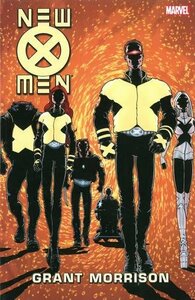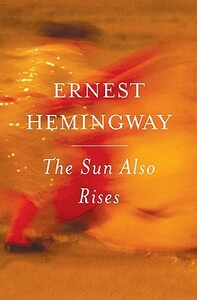You need to sign in or sign up before continuing.
Take a photo of a barcode or cover
adam_mcphee's Reviews (2.87k)
Quitely's art is always amazing and it's almost impossible to screw up an X-Men story.
The best parts were when they were exploring the planet in the Proxima system (in the three years since the book was published, a planet in that system has been discovered, and it's roughly in the habitable zone). Reminiscent of Kim Stanley Robinson. I really liked the builders, they reminded me of the alien tripods from Clarke's Rendezvous with Rama, but the ColU robot was my favourite.
What I disliked was the geopolitics. I feel like that always fails in sci-fi books. At best, events like the American conquering of Canada, or the French colonization of southern Britain come off as ridiculous, even when there are plausible explanations. At worst, it comes off as the paranoid libertarianism of seventies sci-fi, right down to the paranoia about U.N. troops and the Chinese invasion of Australia. Also I really disliked the ending.
Though it was cool that they buried part of an important computer in Fort Chipewyan.
What I disliked was the geopolitics. I feel like that always fails in sci-fi books. At best, events like the American conquering of Canada, or the French colonization of southern Britain come off as ridiculous, even when there are plausible explanations. At worst, it comes off as the paranoid libertarianism of seventies sci-fi, right down to the paranoia about U.N. troops and the Chinese invasion of Australia. Also I really disliked the ending.
Though it was cool that they buried part of an important computer in Fort Chipewyan.
This old Dolan article is best thing I've ever read about The Stranger, and Existentialism, and is far better than the book itself: https://www.nsfwcorp.com/dispatch/stranger-stranger/
Relevant bits:
Relevant bits:
I’m talking about “The Stranger” by Camus, and if you went to a lame public high school like I did, you probably had to read it. Back then, we just assumed French people felt all kinds of exotic, high-priced pain that ordinary Californians would never understand. So everybody loved that book, or at least said they did. There was even a tribute song to the book by The Cure, “Killing an Arab”—which was enthusiastically received in the Red States by guys who didn’t get that it was, like, ironic—and there’s a band in Canada (naturally) called l’Etranger. (Psssst! That’s “The Stranger” in French! I never met a bilingual Canadian Anglo myself, but they like to keep the bluff going.) Discussions in English class at Pleasant Hill High were muted—I didn’t realize it at the time (most of my classmates gave me plenty of room due to certain hygiene issues) but everybody except me was stoned out of his or her mind. Maybe “The Stranger” actually makes sense if you’re floating around in a soup of THC and Mescaline.
I remember that the teacher kept repeating the word “malaise” with the hesitation English speakers get when they see the end of a French word coming up and face the Eternal Question: “Oh God, do I pronounce that final consonant or not?” While Mrs. Mohler worked on her pronunciation, I tried to figure out what “malaise” was supposed to mean. What was this guy Meursault’s problem, anyway? He was having all this sex, he lived in this cool place with a beach; what was the deal? I finally decided that “malaise” was one of those diseases that only strike people who are very cool (that is, the opposite of me). No wonder I couldn’t understand Camus; he was for cool people—and didn’t all the cool people in my high school stand around sneering and mumbling and looking tired all the time? Maybe they had malaise.
Looking back now, the real topic of “The Stranger” is painfully obvious. Camus and the French had a demographic problem. They were going to have to give up some prime Mediterranean beachfront. Which is why the idiot protagonist kills an Arab on the beach and gets himself executed. Spoiler alert: That’s the plot of “The Stranger.” French mama’s boy kills Arab on beach, whiles away the time in prison waiting to be guillotined thinking about…you know, I can’t even remember what he was thinking about. That’s probably because, like almost all the leftist European rhetoric of the postwar years, “The Stranger” is totally disingenuous. It can’t just come out and say, “God damn it, we like this beach! We conquered this beach! Why we gotta give up all this nice beach just because you Arabs are out-breeding us?” You look back now and it’s obvious that’s what Camus, a French Algerian (a now extinct tribe), was writing about. Normal tribal behavior, resorting to violence when you’re losing coveted territory. But God forbid Camus should talk that way out loud back in those post-Stalingrad days when everything was moral, except the nonstop lying.
Camus was a little more honest than Sartre—Titus Oates was more honest than Sartre—but not honest enough to say that the issue was demographics and beachfront. Nobody was, until Houllebecq, the first honest French writer since Celine, created “Bruno,” the kid warped forever by losing his home in Algeria. It’s a sad decline for a nation that once produced writers like La Mettrie, honest as sulfuric acid. All that courage died in Stalingrad, and in Camus’ day the only real purpose of European lit was to fill pages, make your rep, and say “Not a fascist, not a fascist” enough times that the Sovok critics in Paris believed you. And that, my friends, is how “existentialism” was born: As a way of not saying what really mattered, what was actually in everybody’s face in Europe from 1945 onward. When you can’t say what matters and you’ve got an intellectual ego the size of Jupiter, you’ve got a lot of pages to fill, and the time-tested way is a mix of over-writing and ultra-violence. Just ask our own domestic crafter of artisanal prose, Cormac (ne “Charlie”) McCarthy, about that.
Houellebecq has a line in his latest, where he says that all masterpieces are dead ends. And I think that's part of the problem here. How could you possibly improve on something like The Wake?
Still, Kingsnorth's style is amazing, and it's interesting how much of it carries over from the self-imposed discipline in his debut.
Still, Kingsnorth's style is amazing, and it's interesting how much of it carries over from the self-imposed discipline in his debut.








